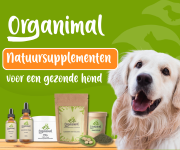Trouwens, in de artikelen van Ronald Schultz staat dat Lepto entingen (het is trouwens een Lepto enting TEGEN de onder andere de ziekte van Weil. En de ziekte van Weil is de ziekte die je mogelijk krijgt na besmetting met de L. icterohaemorrhagiae) niet beschermen tegen het blijven uitscheiden van de bacterie (dus als je hond besmet is, kan hij de bacterie blijven uitscheiden, ook al is hij geent).
Dit is niet langer het geval? Blijkbaar worden ook de entstoffen toch wel verbeterd? Dit zegt Nobivac over de Lepto-enting:
"Binnen 1 jaar zijn er geen antistoffen meer meetbaar in het bloed, maar na contact met de bacterie treedt er nog steeds beschermde immuunrespons op. Na ongeveer 1 jaar is dat niet meer het geval. Een gevaccineerde hond is geen drager van de bacterie en er is geen uitscheiding van leptospiren in de urine".
Op weer een andere site lees ik dat de lepto bacterieen niet tegen een zuur millieu kunnen en dus sowieso sterven in de urine van honden, waardoor ze geen besmettingsgevaar meer zijn voor andere honden of mensen. Honden hebben een zure urine. Koeien en ratten hebben daar-in-tegen een alkalische urine.
Lastige materie hoor...
Ik heb in ieder geval besloten dat ik Pinkel sowieso niet laat vaccineren tegen lepto. Zij is vorig jaar echt niet goed geworden van die enting en ik heb maaaaanden met haar gezondheid lopen tobben. Brutus ent ik denk ik ook niet tegen Weil. Linga twijfel ik nog over.... Zij is een echte waterrat en ze vindt de goorste poeltjes lekker. En hoewel ik weet dat zij een veel sterker immuunsysteem heeft, omdat ze nog nooit 1 brok in d'r leven gezien heeft, weet ik niet of ik het aandurf om haar niet te eten.... Ik heb nog even de tijd om er over na te denken

(ze hoeft pas over een paar maanden geent te worden).
Overigens, de lepto enting is er echt eentje die je niet een pups moet geven voor 16 weken. Voor 16 weken kan deze enting echt ernstige immuniteitsstoornissen veroorzaken... Kun je nagaan wat een rottige enting het is... (Volgens mij DE rottigste).
Nou ja, hier komt nog even wat droge info over Lepto:
Some facts about leptospirosis
What causes leptospirosis?
Leptospirosis is caused by spirochete (or spiral-shaped) bacteria called leptospires. The leptospires live in fluids from infected animals, including urine, saliva, blood and milk.
What are the symptoms?
In general, the disease resembles the flu with fever, headache, chills and myalgia (muscle pain).
How is leptospirosis treated?
Dogs are treated with a course of antibiotics and with intravenous fluid to overcome dehydration. Diagnosis is based on clinical signs and laboratory tests.
Do humans catch leptospirosis?
Leptospirosis is a so-called zoonotic disease that can be transmitted from animals to humans. People can catch the disease from water that is contaminated by infected wild or domestic animals, as well as from more direct contact with animals, such as rodents, raccoons, skunks and cattle.
Why are cats not affected by leptospirosis?
Tests for antibodies show that some cats are exposed to the disease, but cats almost never show clinical signs of leptospirosis. Some experts believe that cats have developed a kind of immunity to leptospirosis from their longtime association with rodents.
Now for leptospirosis. Being bacterial in nature, the immunity developed does not last. One would be lucky if immunity lasts 4 months! Unfortunately, our canine vaccines incorporate lepto, and thus, the program for lepto is attached to the program for the viral diseases. Ideally, lepto vaccines, for continued protection, should be given every 3 to 4 months. Of course, there is always the possibility that dogs are exposed to natural lepto, and thus, they receive a "booster."
Immunity from vaccination can wane, but in the period, if the dog is exposed to natural disease, then its immunity will again rise. Of course, they should not come down with the disease in these subsequent exposures, but their immunity would be responding.
Therefore, the level of immunity (antibodies) is not only a function of the date of the last vaccination, but is also affected by subsequent exposure to natural disease.
In fact, there is a controversy about the need for annual vaccination boosters. The need has never been established. A study found that dogs that were never vaccinated again for seven years or more were found to have protective levels of antibody. (Again, this may not be a function of vaccination alone, but also that of subsequent exposure to disease.)
Note, however, that immunity is long lasting to viral diseases (distemper, hepatitis, parvovirus, rabies) but is very short for bacterial diseases (leptospirosis).
-- from the Diagnostic Laboratory, College of Veterinary Medicine
===================
In Amerika is er overigens al een lepto enting waar 4 bacterie-types in zitten omdat er een verschuiving van besmetting plaats vond naar: grippotyphosa en pomona. Maar vooralsnog ziet het er naar uit dat we in NL toch vooral te maken hebben met de :
L. Canicola: 800 - 1200 10exp6 kiemen/ml
L. Icterohaemorrhagiae: 800 - 1200 10exp6 kiemen/ml
Overigens is dit ook een zeer leerzame site als het om lepto gaat:
http://www.leptospirosis.org/ (heb 'm al een paar keer eerder vermeld in andere interessante lept-discussies).






